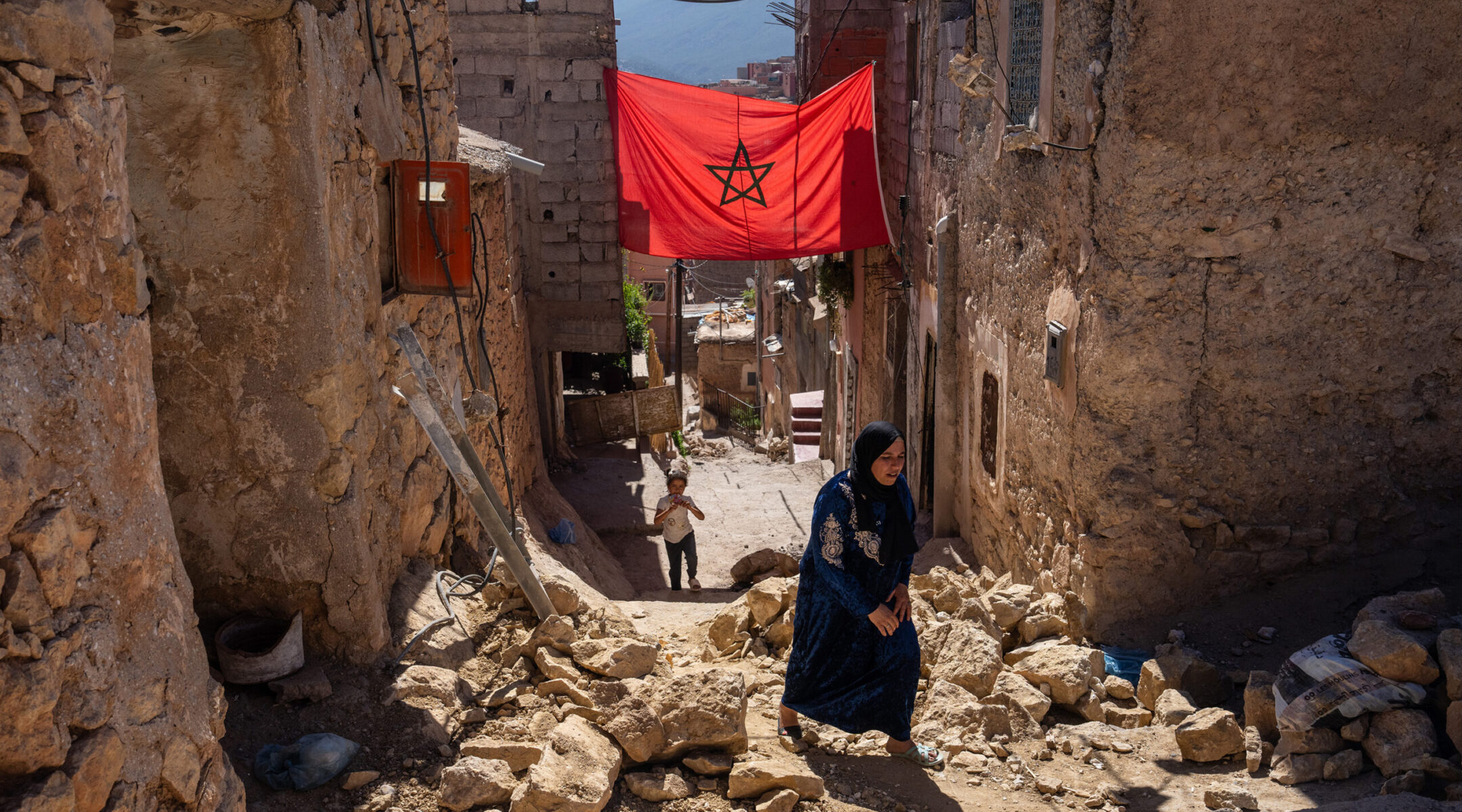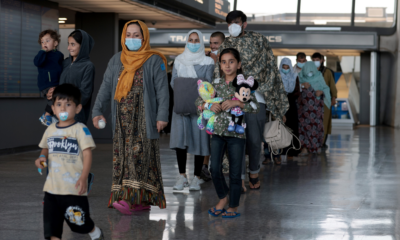
World

Jews and Jewish sites survive Morocco earthquake unscathed
JTA- Jews and Jewish sites appear to have largely been spared following the devastating earthquake that struck Morocco late on 8 September, killing at least 2 600 people and plunging some of the poorest areas of the northwest African country into ruins.
The export of etrogs, the citrus fruit harvested locally and used ritually in the upcoming festival of Sukkot, also appears to be continuing largely unabated.
Israeli rescue teams are on the ground, and the country has offered additional aid to Morocco, as a massive humanitarian effort takes shape in the hours after the quake, the region’s largest in more than a century. The American Jewish Joint Distribution Committee (JDC) which has operated in Morocco since 1947, has sent staff to begin an aid operation there.
Dov Maisel, the vice-president of operations at Israel Hatzalah, an emergency aid non-profit organisation, said a preliminary team of four people with experience in disaster management had travelled to Morocco early on 10 September.
“They are describing terrible sites of destruction,” he told the Jewish Telegraphic Agency (JTA), saying that his group would determine the size and scope of its ultimate mission based on what the team observed. “Will it be more medical? Search and rescue? Psycho-trauma? This is the evaluation they are doing right now.”
The 6.8-magnitude earthquake, centred in the Atlas Mountains near Marrakesh, struck at a time of heightened Jewish tourism, following Israel’s normalisation of relations with Morocco in 2020. Israel said it was aware of 479 Israelis in the country at the time of the quake, and had accounted for the safety of all of them.
The quake came on the eve of a major pilgrimage timed to the anniversary of a Moroccan rabbi’s death, and as the country’s etrog farms were completing their harvests of etrogs leading up to the fall harvest festival of Sukkot, which begins this year in less than three weeks, on 29 September. Hundreds of thousands of etrogs are grown in Morocco annually ahead of the holiday.
Tradition holds that etrog trees were first planted in the Atlas Mountains nearly 2 000 years ago by Jews who found shelter among the Berber tribes there after the destruction of the Second Temple in Jerusalem. Today, the etrog farms in the Atlas Mountains are largely staffed by Berbers and owned by Jews living in Israel or in Agadir, a coastal city that was flattened in 1960 by an earthquake that, according to JTA’s reports at the time, killed a third of the local population overall and two-thirds of its Jewish community, about 1 500 people.
Like many people involved in the etrog trade, Tsvi Dahan was spending Shabbat in Agadir, where there’s a tiny remaining Jewish community that grows during the etrog harvest. An Israeli who owns a grove about an hour away, Dahan was sleeping in a local hotel when the earth started shaking.
“I knew immediately that it was an earthquake,” Dahan said. His wife, Deborah Dahan, is a JTA correspondent in Israel. “I put my head on the pillow and felt the bed move. I saw that the room was continuing to shake. In seven seconds I was downstairs without anything, just my shirt and underwear.”
The hotel didn’t let guests re-enter, so Dahan and others spent the rest of the night sleeping outside the synagogue. The building, like the rest in the city, was built after 1960 as Agadir was reconstructed closer to the shore, downhill from the ruined city.
Dahan said he had quickly connected with Bilaid el Bouhali, the Berber who manages his grove, and learned that while el Bouhali was safe, his city of Oulad Berhil, in the mountains between Marrakesh and Agadir, was in ruins.
On Sunday, Dahan was trying to figure out how to get himself and the etrogs out of the country. Marrakesh Menara Airport is closed until further notice, but Dahan said he thought the first etrog shipments would depart on schedule.
In Marrakesh, where about 120 Jews live, many buildings have collapsed, and authorities have instructed residents to sleep outdoors for the next several days in case of aftershocks. The majority of Morocco’s 1 500 Jews live in Casablanca, which wasn’t affected by the earthquake. But though many homes lay in ruins, including Dahan’s family home, where his grandmother and uncles lived until recently, relatively few deaths occurred there.
“Everything is okay. not a single Jew was injured,” said Menachem Danino, a Casablanca-born Israeli who runs a Facebook group for Moroccans in Israel. “All of the houses in the quarter were destroyed except the synagogue, which is fine with the exception of some cracks in the walls.”
Just a few miles outside the city, entire villages have crumbled, and an accounting of the injured and dead is still taking place.
“Throughout the day, they have been meeting officials on the ground and going out to villages between 15km to 20km outside of Marrakesh, where the earthquake really wiped the villages off the face of this earth,” Maisel said.
Israeli Prime Minister Benjamin Netanyahu opened his Sunday Cabinet meeting by pledging support for Morocco. An official request for aid hadn’t yet been made by midday on 10 September, Israeli officials said.
Another Israeli non-profit organisation, SmartAID, said it had sent 20 people along with technology that could facilitate communication and medical care in areas without electricity and running water. And the JDC is building up a team around its Casablanca-based Morocco director for a sustained aid operation.
“As we mourn the loss of life and devastation in Morocco, we’re working with the Moroccan Jewish community to provide assistance to those most impacted in Marrakesh and ensure their most basic needs are being met,” said Pablo Weinsteiner, JDC’s chief operating officer. “As we in the Jewish community approach the high holidays, weighing the uncertain balance between life and death and the importance of aiding those most in need, we’re on the ground in Morocco to preserve life, to comfort and support the most vulnerable, and to fulfil our commitment to repairing a broken world.”
Danino said he saw divine intervention in the fact that Morocco’s many Jewish sites had apparently survived the quake.
“Graves of Jewish sages [in the affected area] weren’t damaged,” he said, noting that he had spoken to the people responsible for the upkeep of the tomb of Rabbi Shlomo Bel Hench, a chief rabbi of Marrakesh who died 500 years ago and is buried outside the city in Ourika.










